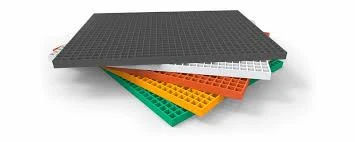
-
 Afrikaans
Afrikaans -
 Albanian
Albanian -
 Amharic
Amharic -
 Arabic
Arabic -
 Armenian
Armenian -
 Azerbaijani
Azerbaijani -
 Basque
Basque -
 Belarusian
Belarusian -
 Bengali
Bengali -
 Bosnian
Bosnian -
 Bulgarian
Bulgarian -
 Catalan
Catalan -
 Cebuano
Cebuano -
 China
China -
 China (Taiwan)
China (Taiwan) -
 Corsican
Corsican -
 Croatian
Croatian -
 Czech
Czech -
 Danish
Danish -
 Dutch
Dutch -
 English
English -
 Esperanto
Esperanto -
 Estonian
Estonian -
 Finnish
Finnish -
 French
French -
 Frisian
Frisian -
 Galician
Galician -
 Georgian
Georgian -
 German
German -
 Greek
Greek -
 Gujarati
Gujarati -
 Haitian Creole
Haitian Creole -
 hausa
hausa -
 hawaiian
hawaiian -
 Hebrew
Hebrew -
 Hindi
Hindi -
 Miao
Miao -
 Hungarian
Hungarian -
 Icelandic
Icelandic -
 igbo
igbo -
 Indonesian
Indonesian -
 irish
irish -
 Italian
Italian -
 Japanese
Japanese -
 Javanese
Javanese -
 Kannada
Kannada -
 kazakh
kazakh -
 Khmer
Khmer -
 Rwandese
Rwandese -
 Korean
Korean -
 Kurdish
Kurdish -
 Kyrgyz
Kyrgyz -
 Lao
Lao -
 Latin
Latin -
 Latvian
Latvian -
 Lithuanian
Lithuanian -
 Luxembourgish
Luxembourgish -
 Macedonian
Macedonian -
 Malgashi
Malgashi -
 Malay
Malay -
 Malayalam
Malayalam -
 Maltese
Maltese -
 Maori
Maori -
 Marathi
Marathi -
 Mongolian
Mongolian -
 Myanmar
Myanmar -
 Nepali
Nepali -
 Norwegian
Norwegian -
 Norwegian
Norwegian -
 Occitan
Occitan -
 Pashto
Pashto -
 Persian
Persian -
 Polish
Polish -
 Portuguese
Portuguese -
 Punjabi
Punjabi -
 Romanian
Romanian -
 Russian
Russian -
 Samoan
Samoan -
 Scottish Gaelic
Scottish Gaelic -
 Serbian
Serbian -
 Sesotho
Sesotho -
 Shona
Shona -
 Sindhi
Sindhi -
 Sinhala
Sinhala -
 Slovak
Slovak -
 Slovenian
Slovenian -
 Somali
Somali -
 Spanish
Spanish -
 Sundanese
Sundanese -
 Swahili
Swahili -
 Swedish
Swedish -
 Tagalog
Tagalog -
 Tajik
Tajik -
 Tamil
Tamil -
 Tatar
Tatar -
 Telugu
Telugu -
 Thai
Thai -
 Turkish
Turkish -
 Turkmen
Turkmen -
 Ukrainian
Ukrainian -
 Urdu
Urdu -
 Uighur
Uighur -
 Uzbek
Uzbek -
 Vietnamese
Vietnamese -
 Welsh
Welsh -
 Bantu
Bantu -
 Yiddish
Yiddish -
 Yoruba
Yoruba -
 Zulu
Zulu
fiberglass fertilizer tanks
Fiberglass Fertilizer Tanks Advantages and Applications
Fiberglass fertilizer tanks have emerged as a preferred storage solution in agricultural and industrial sectors. These tanks are designed to hold a variety of liquid fertilizers, making them vital for efficient farming and crop production. The selection of fiberglass as the primary material for these tanks offers several significant advantages that enhance their overall utility and longevity.
One of the standout benefits of fiberglass fertilizer tanks is their exceptional resistance to corrosion and chemical degradation. Unlike traditional steel or metal tanks, which are prone to rust and deterioration when exposed to harsh chemicals, fiberglass tanks maintain their integrity over time. This resistance is crucial since fertilizers often contain aggressive compounds that can compromise other materials. This quality not only extends the lifespan of the tanks but also ensures the safety and containment of the fertilizers stored within.
Another key advantage is the lightweight nature of fiberglass. This characteristic makes handling, installation, and transportation straightforward and less labor-intensive compared to heavier materials. Moreover, fiberglass tanks can be produced in various sizes and shapes, allowing for flexibility in design to meet specific needs. Whether for small farms or large industrial applications, fiberglass tanks can be customized to fit the exact requirements of any operation.
fiberglass fertilizer tanks

Additionally, fiberglass tanks offer excellent insulation properties. This feature helps to keep the fertilizers at stable temperatures, minimizing the risk of chemical reactions that could occur with temperature fluctuations. Such stability is vital for maintaining the effectiveness of the fertilizers, thus ensuring optimal plant growth and yield.
Moreover, fiberglass tanks are also environmentally friendly. Their longevity reduces the need for frequent replacements, leading to less waste. Furthermore, the manufacturing process of fiberglass can be conducted in a manner that minimizes environmental impact, aligning well with the growing emphasis on sustainability in agriculture.
In terms of maintenance, fiberglass tanks require minimal upkeep compared to their metal counterparts. They are resistant to the buildup of algae and other contaminants, which can often plague traditional tanks. Regular inspections and basic cleaning are generally sufficient to keep these tanks functioning efficiently.
In conclusion, fiberglass fertilizer tanks represent a remarkable advancement in the storage solutions for fertilizers. Their durability, lightweight nature, resistance to corrosion, and low maintenance requirements provide a reliable and efficient alternative for agricultural and industrial use. As the agriculture sector continues to evolve, embracing technology and innovative materials like fiberglass will be essential for enhancing productivity and sustainability.









